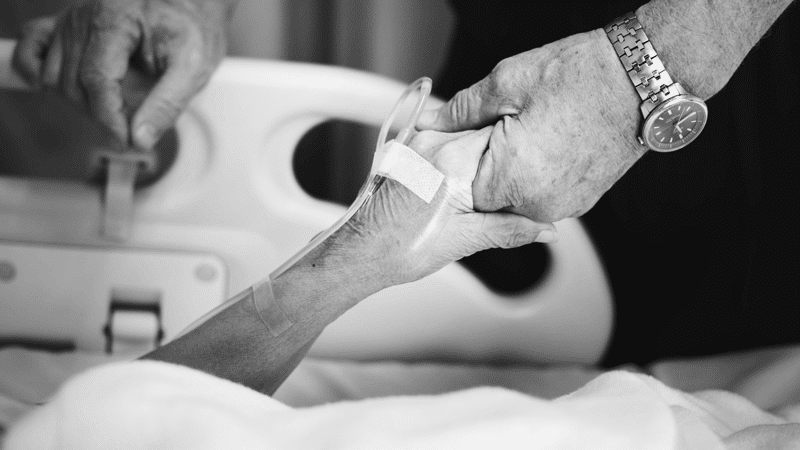Over half of adults who support assisted suicide admit they would be likely to change their mind if someone was pressured into being killed, according to a new survey.
Of 2,063 adults in England and Wales surveyed by Focaldata, 63 per cent stated that they want Parliament to legalise assisted suicide in the next five years. But 55 per cent of those said they may reverse their support if “someone was pressured into having an assisted death”.
The research, conducted on behalf of the Complex Life and Death Decisions Group (CLADD) at King’s College London, also found that 48 per cent of supporters may change their mind if a person asked to be killed because “they could not access the care and support they needed”.
Concerns
Overall, 20 per cent of participants opposed assisted suicide, with 17 per cent undecided.
Commonly cited reasons for opposing assisted suicide included concerns surrounding coercion, doctors’ duty to “save lives” rather than end them, and people changing their minds “too late”.
Professor Katherine Sleeman of CLAAD commented that it is “critical that the debate on assisted dying considers the complexities involved”, including “the implications of legalising assisted dying in a context where many dying people struggle to access the care they need”.
‘Value’
Writing in The Times, retired palliative care consultant Dr David Jeffrey emphasised that Britain “should face the challenge of a broken NHS by striving to provide palliative care for all, not by assisting in patients’ suicide. In our care and support for the dying we demonstrate our society’s values to the world.”
Likewise, Dr Susan Coe FRCA told The Daily Telegraph that no-one’s medical condition or dependence on others devalues their life.
She called for a “properly informed debate about palliative and end-of-life care”, rather than pushing through legislation that “will change forever our regard for human life”.
Former hospice nurse Denise McEwan highlighted that palliative care often involves “a positive end to a valued life allowing for reflection, reconciliation, preparation and time with people who matter”.
Slippery slope
Earlier this month, former BBC journalist Iain Macwhirter warned that assisted suicide must not become a “kind of default social care for the poor and the disabled”.
Writing in The Times, the political commentator shared how he used to unquestionably support assisted suicide, before realising that the “slippery slope is all too real and all but unavoidable”.
He emphasised that, despite best intentions, international experience shows that assisted suicide laws cannot be “watertight”, as they inevitably expand to include more groups of people.
Labour MP Kim Leadbeater’s Private Member’s Bill, which the House of Commons is expected to debate next month, would allow those deemed to be terminally ill to receive help to kill themselves.

Scot Govt: ‘Assisted suicide Bill outside Holyrood’s powers’
Palliative care expert: ‘Blind support for assisted suicide downright dangerous’


